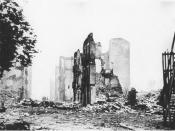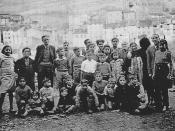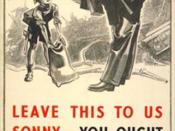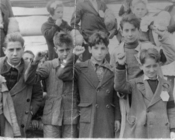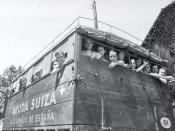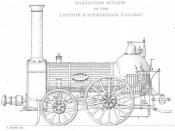There are several groups of people whose opinions on evacuation you could refer to in the course of your answer. There are of course the children themselves, the teachers, the medical staff that travelled with sick children, the parents who travelled with younger children, the officials who were responsible for the evacuations and the families with whom the evacuees were billeted. Remember also that there were three periods of evacuation during the war.
You should also look at the variety of experience. Some children were very happy in their billets and maintained relationships with their hosts long after the war. Others however were badly treated and suffered trauma and abuse. Look also at what people felt at the different stages: preparations for evacuation, travel to and arrival in the reception areas, being placed with a family, going to school and what relationships developed with children in the reception areas.
When evacuation started in September 1939 it was very popular.
Many ordinary people in Britain, especially in the large cities such as London and Birmingham were extremely worried that Germany would bomb cities without mercy. These fears were due to news reels in cinemas of German planes bombing cities in the Spanish Civil War, especially Guernica in 1937 and also Japanese bombing of cities in China especially Shanghai in 1937. So people were very relieved that children and mothers of young children were evacuated.
However the German bombing of British cities didn't begin until the autumn of 1940 and was at its worse through the winter of 1940-1941, being called the Blitz. Before this thousands of children went home and had to be evacuated again!
Evacuation was generally successful and certainly helped to save the lives of thousands of ordinary children from bombing. It involved hundreds of thousands of children, teachers and mothers being moved. It affected thousands of families who became the 'hosts' and foster families to these children. Considering the numbers of people and the distances and organisation needed it was a great success.
Some of the arrangements as you might expect were very hasty and some children were divided from brothers and sisters. Also some areas had too many evacuees and some not enough for the amount of houses in their areas. A lot of rural schools were simply too small to cope and a shortage of classrooms and teachers meant that many children enjoyed a lot of extra 'holiday' time which was often spent farming.
Many 'evacuees' or the children evacuated had a fantastic time, met new friends and saw areas they had never seen before. A lot of them had not been on holiday before and had no experience of farming and the countryside. It was an experience which enriched their lives and has stayed part of their lives with life long friends and they have 'second' families away from home.
However there is now new research by historians, which shows that for a SMALL MINORITY of evacuees it was unpleasant. They were bullied in rural schools, they lived with people who they didn't know, and sometimes they were in families, which were either a lot richer or poorer than their own. Unfortunately a small number of evacuees were exposed to physical and emotional abuse as well.
